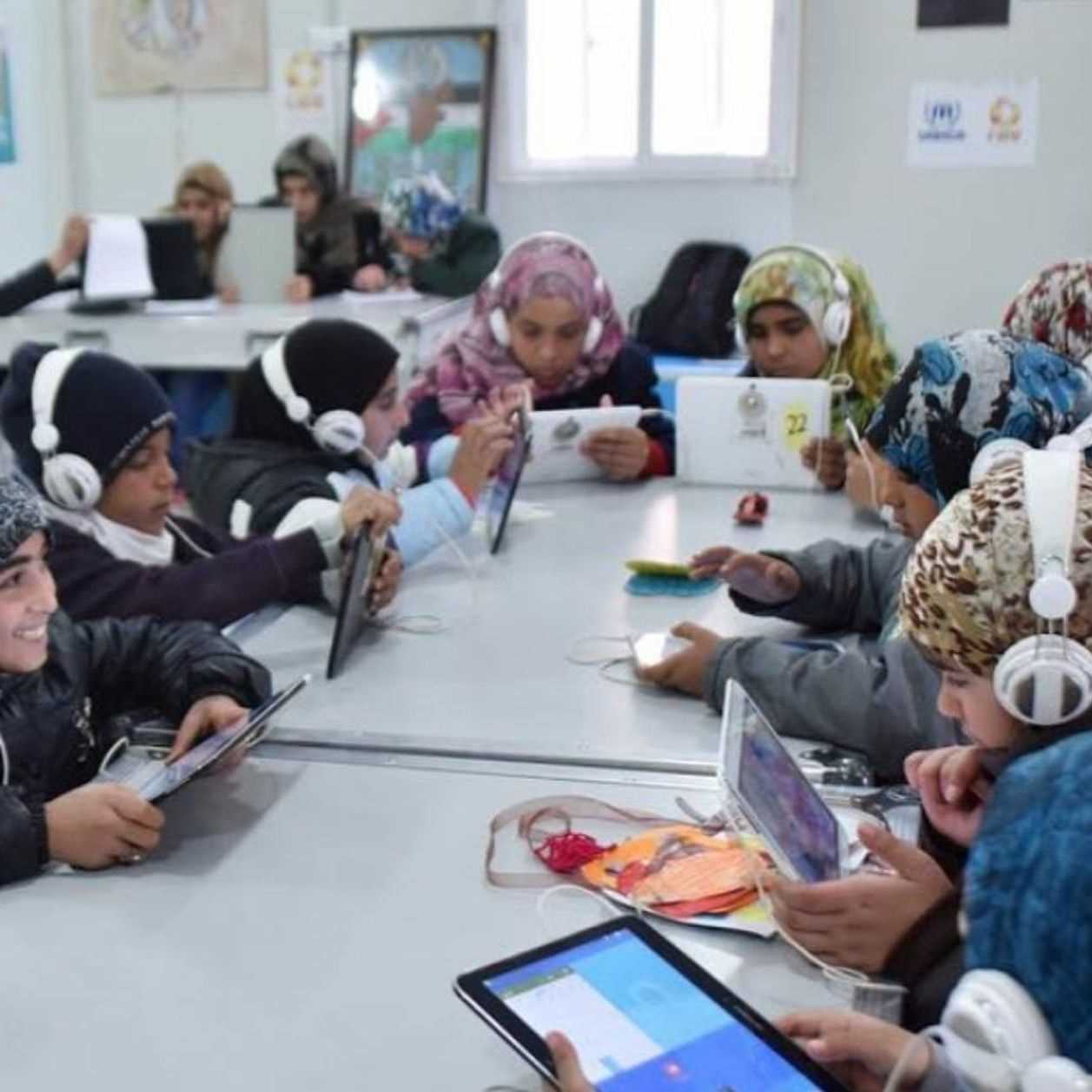Present in refugee camps, in working-class neighborhoods, in rural areas, or even with the homeless, the association, Libraries without Borders, is on all fronts. For the past 13 years, it has offered the most vulnerable populations the means to learn, educate and open up to the world in order to better enlighten them in return. A precious help in this period of health crisis.
"What is a man, a woman, a child, once his life saved, his food and his shelter found, if, without activity, he cannot read, write, draw or communicate, to better project himself in the future and rebuild?This quote from Patrick Weil, president of Bibliothèques sans frontières (BSF) is very meaningful. The NGO, created in France in 2007, has its origins in the urgency of building an organization that gives the greatest number of means to educate themselves. Libraries Without Borders argues for "a new approach to cultural cooperation with developing countries, in particular to rethink book collection and build sustainable economic models for public and association libraries".
The humanitarian initiative is present in 50 countries and gives each and everyone the capacity to be independent and to thrive through open and free access to education. These libraries can thus be virtual or physical, fixed or mobile. Content and tools are emerging like Ideas Box. Imagined by Libraries without Borders in collaboration with designer Philippe Starck and the United Nations High Commissioner for Refugees (UNHCR), the Ideas Box is a kit media library that can be deployed (in 20 minutes) on all terrains including refugee camps (at present, nearly 70 million people). This last provides vulnerable populations with spaces with books, board games, computers, cameras and tablets. Then, BSF partner NGOs and volunteer refugees are trained in the use and opening of these libraries. This empowerment makes it possible to strengthen actors in the field for "the fundamental right to culture".
"This allows you to rebuild yourself. Some have experienced war trauma. A number that is important to us is 17 years old. Refugees stay on average 17 years in the camps. Imagine, when we, we are confined because of coronavirus a few weeks, for them, it is counted in several years. When a child arrives at 10, it comes out at 27! And one of the first illnesses in these camps is boredom. Once we have been able to house, feed and care for individuals, they want to learn, to create, to have a window on the world to build themselves …", explains Barnabé Louche, director of Partnerships and Communication at BSF, by telephone.
"We work in 30 languages with local partners to offer appropriate libraries in each place where we are. We adapt. The tools can vary between working in Arabic or Farsi, if we meet young Kurdish girls or an audience older, illiterate in France ", he continues.
Culture as a social bond
The organization is thus embarking on the digital path, thanks to innovative pedagogies. The contents of Khan Academy offer reliable lessons and exercises covering math, science and much more, completely free for learners and teachers. Useful software in this time of confinement when children are doing school at home. The dematerialization of knowledge is a response to the problems linked to the connectivity of isolated populations. The KoomBook is the best example. This new generation digital library, easy to transport, works without an Internet connection, in order to disseminate knowledge and information even in the most remote areas.
Last January, BSF organized a video game tournament in a refugee camp in Jordan. For Barnabé Louche, "this tool allows you to gain self-confidence and live an adolescence, a childhood almost like everyone else".
The Covid-19 issue
The coronavirus health crisis and the confinement resulted in the almost total cessation of the activities of the association, which has around a hundred employees. Some returned to their country of origin, others remained but all precautions are taken for their safety.
"The first cases of Covid-19 arrive in camps in Bangladesh, for example, there is much concern. Refugees must therefore be protected and they should be treated. It is inevitable, the pandemic will develop. Barrier gestures are essential as everywhere in the world. Pay attention to hygienic conditions"says Barnabé Louche.
In addition, according to him, this quarantine situation highlights the fact that access to Education and Culture is not as obvious and natural as it may seem.
"I hope this complicated time will allow us to have more empathy and humility in the face of situations that happen in other places of the globe".
If you want to help Libraries without Borders, donations are obviously essential to the survival of such an association like others, but you can also join the community by following the actions of the organization via its various social networks (Facebook, Twitter, Youtube and Instagram).
